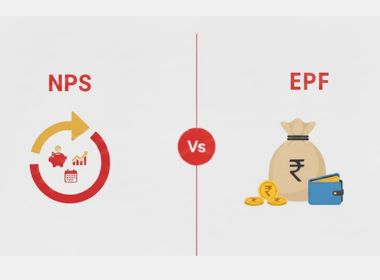Search Suggestions
- Gold Loan
- Money Transfer
- Mutual Funds

FD vs RD: Which Investment is Right for You?
When it comes to low-risk investment options in India, the choice often narrows down to two straightforward products: a Fixed Deposit (FD) and a Recurring Deposit (RD). If you're confused about fd vs rd, you're not alone. This blog will guide you through the key differences, advantages and suitability of each option so you can decide RD vs FD which is better for your financial goals.
Table of Content
- What Are FD and RD?
- Key Differences: FD vs RD
- FD vs RD: Which Is Better?
- When to Choose FD?
- When to Choose RD?
- Where Does a Mutual Fund or SIP Fit In?
What Are FD and RD?
A fixed deposit means you invest a lump-sum amount for a fixed tenure and earn a predetermined interest rate. On the other hand, a recurring deposit allows you to deposit a fixed monthly amount for a predetermined period and earn interest at rates generally similar to FDs.
Key Differences: FD vs RD
Investment pattern
- In an FD, you invest the entire sum upfront, while in an RD, you contribute regularly every month.
- For example, RD is ideal if you don’t have a large lump sum but can save monthly.
Interest and maturity
- An FD often yields higher interest because you have the full principal working from day one.
- With RD, since funds are added incrementally, the effective maturity value tends to be lower compared to an equivalent sum in an FD for the same tenure.
Tenure and flexibility
- FD tenure may range from a few days to 10 years in many banks.
- RD generally starts from six months to 10 years, but requires regular monthly deposits.
Eligibility & suitability
- If you already have a lump sum to invest, an FD might be your go-to.
- If you prefer to build up savings gradually, the RD suits you better.
Suggested read: Why Debt Mutual Funds are Better than Fixed Deposits
FD vs RD: Which Is Better?
When asked “FD vs RD, which is better?”, the answer depends on your financial situation and goals. According to the analysis, FDs typically offer superior returns when all else is equal. For example, an FD invested with a lump sum may mature with a significantly higher amount compared with an RD of equivalent total investment over the same period.
That said, “better” doesn’t always mean “best” for every investor. Take into account your income flow, savings habits, and risk tolerance.
When to Choose FD?
Opt for an FD if:
- You have a lump sum ready to invest.
- Your goal is capital preservation with minimal effort.
- You want higher interest and can commit the funds for the tenure.
- You’re less comfortable with making monthly contributions.
Suggested Read: What is a Recurring Deposit (RD)? Features, Benefits & How It Works
When to Choose RD?
RD becomes useful if:
- You earn monthly and prefer systematic savings.
- You want to build a habit of disciplined investing.
- You shop for short-to-medium-term goals and may not have a large principal.
- You’re fine with slightly lower returns in exchange for flexibility in contributions.
Where Does a Mutual Fund or SIP Fit In?
While the focus here is on traditional savings options like FD and RD, it’s worth noting that if you are comfortable with market-linked products, you could explore mutual fund investments or systematic investment plans (SIP) for long-term wealth creation. These offer higher growth potential, albeit with higher risk, compared to the difference between FD vs RD which hinges on guaranteed returns.
For those looking for sure returns and low risk, FDs and RDs are still great options. If you want to invest a one-time amount and get the most returns, a fixed deposit might be better. If you’re earning monthly and want to build a habit of saving, a recurring deposit could be the right choice. The important thing is to consider your income patterns, investment timeline, and goals. When you compare FD vs RD, you’re really deciding between immediate investment and consistent saving habits. Match your choice to your situation, and you’ll find what works best for your financial plan.
- Insurance
- Group Insurance
- Health Insurance
- Home Insurance
- Vehicle Insurance
- Life Insurance
- Travel Insurance
- Shop Insurance
CATEGORIES
OUR SERVICES
-

Credit Score
-

Gold Loan
-

Personal Loan
-

Cibil Score
-

Vehicle Loan
-

Small Business Loan
-

Money Transfer
-

Insurance
-

Mutual Funds
-

SME Loan
-

Corporate Loan
-

NCD
-

PAN Card
-

NPS
-

Custom Offers
-

Digital & Cashless
-

Milligram Rewards
-

Bank Mapping
-

Housing Finance
-

#Big Business Loan
-

#Gold Loan Mela
-

#Kholiye Khushiyon Ki Tijori
-

#Gold Loan At Home
-

#Sunherisoch
RECENT POSTS

Understanding Gold Bees: How it Works, Net Asset Value, Returns and More
Know More
Multi Cap and Flexi Cap Mutual Funds: How Are They Different?
Know More
Online Personal Loan vs. Offline Personal Loan - Which Is Better for You?
Know More
10 Tips to Improve Chances of Personal Loan Approval
Know More
10 Factors Affecting Mutual Fund Performance Explained Simply
Know More
10 Key Factors That Affect Your Personal Loan EMI
Know More
What Is Fine Gold? Meaning, Purity (999), Uses & Price Explained
Know More
Gold vs Silver: Which is Better as an Investment?
Know More
Why Gold Is a Safe Haven Asset: Meaning, Benefits & Real Examples
Know More
Gold or Bitcoin - Best Investment for Value Retention
Know MoreFIN SHORTS

The Best 7 SIF Funds of 2026: A Better Way to Invest
Know More
Gold Price Hits ₹1,40,000: How It Impacts Gold Loan Amounts
Know More
How to Check Loan Number: Step-by-Step Process
Know More
How to Open an SIP Account: Online and Offline Process
Know More
How Do I Apply for MSME Certification Online in India?
Know More
7 Important Reasons to Choose Hallmark Gold When Buying Jewellery
Know More
What Are Co-Pay and Deductibles in Insurance Policies?
Know More
Should You Take a Loan Against Your Mutual Fund or SIP?
Know More
Top 5 Best Mid-Cap Mutual Funds to Watch in 2026
Know More
Are Personal Loans Right for Retirees? Key Points to Consider
Know More
What Happens to a Personal Loan After the Borrower Dies?
Know More
Best Loan Choices for Credit Scores of 580 and Below
Know More- South +91 99469 01212
- North 1800 313 1212





